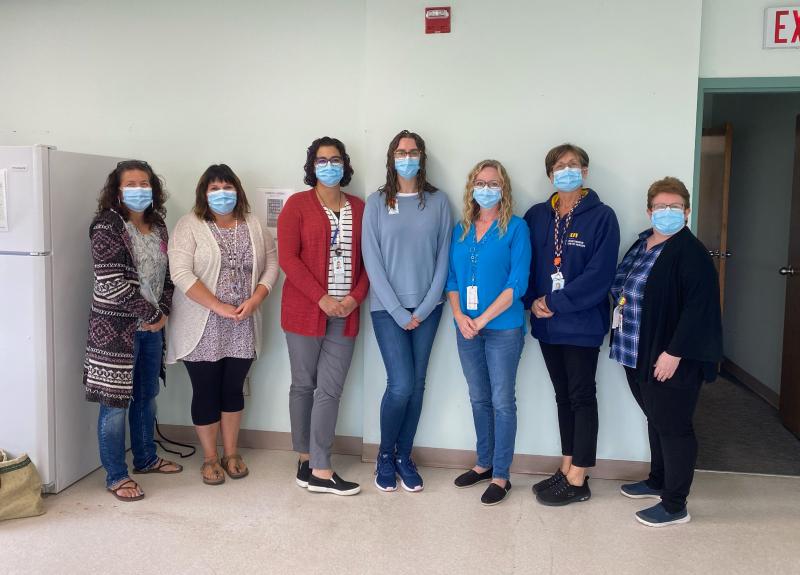Teams work together to support health of women, babies with syphilis
Robin Veszi, Primary Health Care (PHC) interim manager for an area that includes the Sexual Health Program in Saskatoon, says the public health clinic is seeing a record number of syphilis cases this year – part of an international trend.
“In the past number of years, we’ve gone from 30 cases of syphilis a year to 392 so far this year. We’re overwhelmed right now,” she said, noting it’s not unusual for clients to have both syphilis and HIV.
When Lisa Munroe, PHC manager of an area that focuses on preventing childhood illness reached out to help, Veszi welcomed the offer. Veszi said many of their clients live on the street and are hard to reach, and the clinic struggles to do all the needed community outreach at this time.
“A lot of moms seen by the Street Health Program and Sexual Health Program, which the Sexual Health Clinic is part of, are served by us,” said Munroe, whose area is part of the Building Health Equity program and includes the Our Neighbourhood Health Centre (ONHC).
These clients include pregnant women with syphilis. Pregnant women who don’t seek or receive immediate treatment can pass the infection on to their babies. Approximately 40 per cent of babies born to women with untreated syphilis are stillborn or die from the infection as a newborn. Babies born with syphilis, called congenital syphilis, can have a number of serious health issues.
“We don’t want to continue to see this. We want to support prevention,” said Munroe, who noted that syphilis can be treated effectively with penicillin.
Since that initial offer of help, a social worker and a public health nurse with ONHC have been assigned to help with the health needs of pregnant women, and more recently with their partners, who are Sexual Health Program clients with syphilis. These clients also include those who have given birth to stillborn babies, to babies who have died shortly after birth and whose babies have congenital syphilis.
The ONHC staff work with community agencies and SHA’s Street Health team to locate the clients, help them access services, notify them of test results and support them with their medical needs, including transportation. When needed, they’ll also offer snacks.
“Our staff look at the client as a whole patient and consider her needs,” said Munroe. “Sometimes we need to get food in her belly, a food hamper, arrange housing,” said Cristina Ugolini, the director of PHC urban for core and downtown Saskatoon. Among other services, her area of oversight includes Munroe’s and Veszi’s teams.
“A lot of moms have competing priorities and sometimes their own health is the last thing on their minds,” she said.
She credits the Saskatchewan Health Authority’s development of health networks, and the system of cascading huddles which connects primary health care managers from different areas with each other, with bringing the Sexual Health Program team and the ONHC team together to improve patient care.
As a result of seeing concrete change in the lives of their clients, these two teams see a long-term partnership forming.
“This integrated approach will not only improve the health of parents, it will prevent congenital syphilis deaths,” said Ugolini. “We’re doing our best to make an impact for these moms.”



